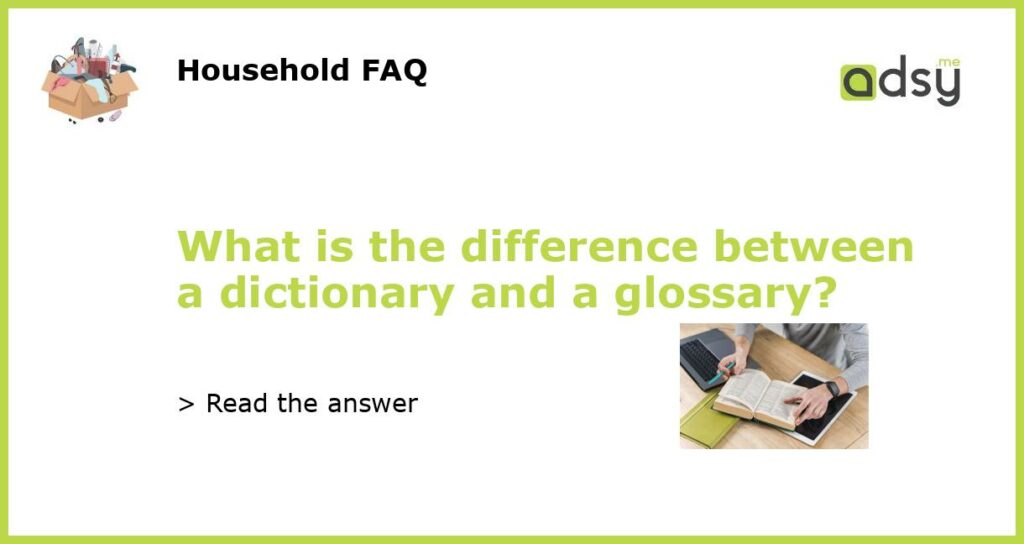Understanding the difference between a dictionary and a glossary
Many people often confuse both these terms, but there is a significant difference between a dictionary and a glossary. While both are useful language tools, they serve different purposes and contain distinct types of information.
What is a dictionary?
A dictionary is a book or electronic resource that compiles words, phrases, and their definitions. It is a comprehensive reference tool that provides information on the etymology, pronunciation, part of speech, and other relevant information related to the word. A dictionary is usually organized alphabetically to make it easy to locate a particular word quickly. It is a useful tool for anyone looking to understand the meaning of an unfamiliar word, whether you are a student, writer, or just someone looking to expand your vocabulary.
What is a glossary?
A glossary is also a book or electronic resource that compiles terms, but it is a bit different from a dictionary. It is a specialized reference tool that provides definitions of terms used within a specific field or subject area. Glossaries are commonly found in textbooks, technical manuals, and academic articles. They are useful for creating a common language within a specific group and helping non-experts understand technical terminology.
Key differences between a dictionary and a glossary
There are several significant differences between a dictionary and a glossary:
Purpose: While a dictionary is designed to provide definitions of words for general education, a glossary is designed to provide more specialized information related to a specific field or subject area.
Organization: Dictionaries are organized alphabetically for easy reference, while glossaries may be organized in any way that makes the most sense for the specific field or subject. For example, a medical glossary may be organized by body part or disease, while a finance glossary may be organized by term type, such as acronyms or jargon.
Content: Dictionaries typically provide information such as pronunciation, part of speech, and etymology in addition to the definition, while glossaries focus only on the definition.
In summary, while both dictionaries and glossaries provide helpful information regarding words or terms, they serve different purposes and contain different types of information. Understanding the differences between these language tools can help you to choose the right one for your specific needs.






